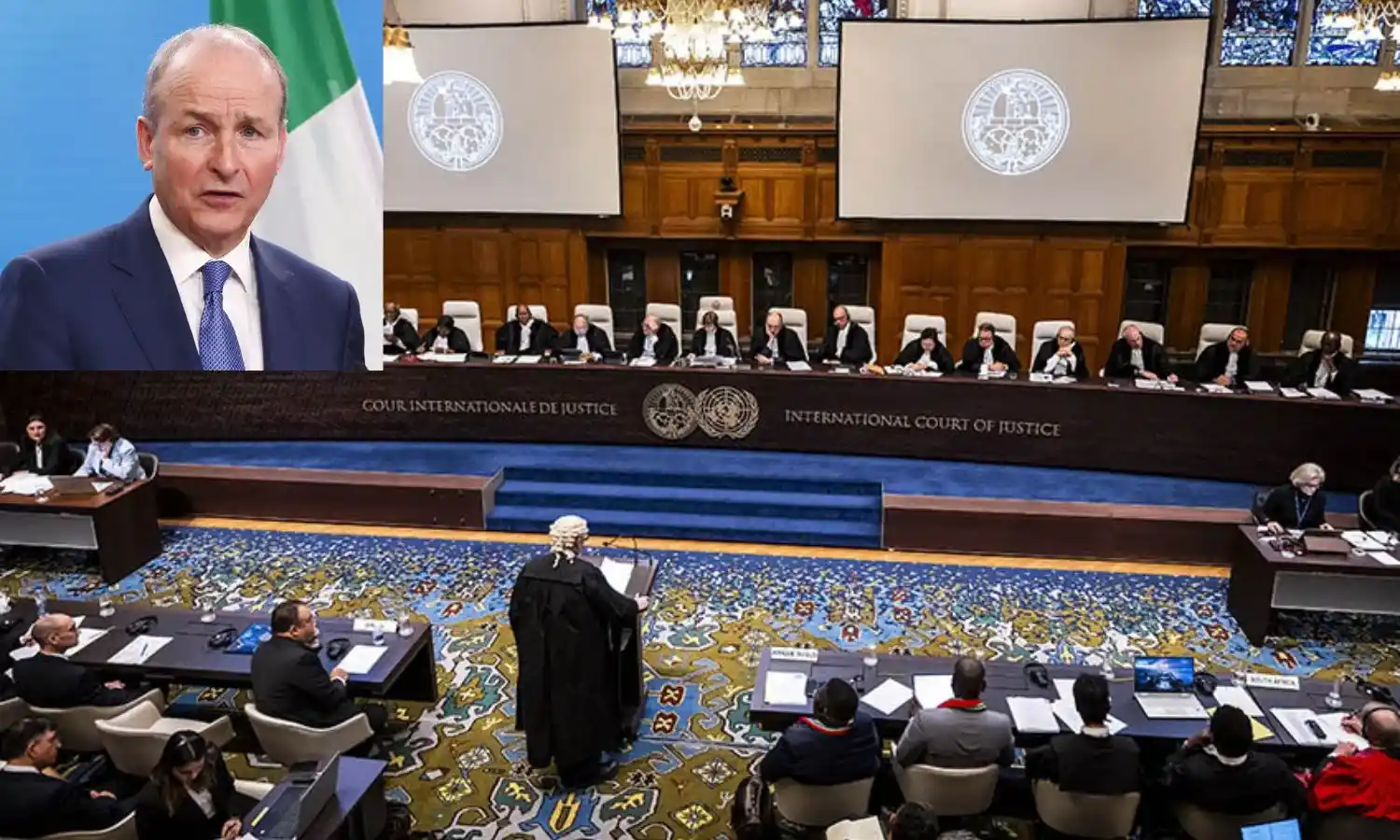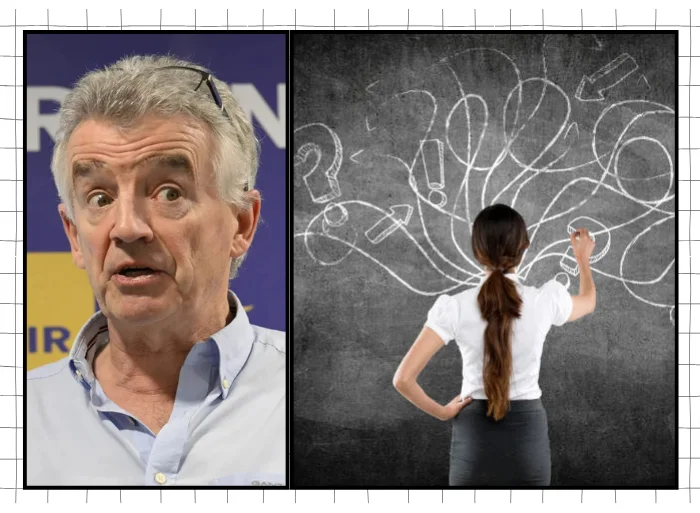Ireland’s intervention in ICJ cases signals fresh direction under new Cabinet

Introduction
Ireland yet again manifests its commitment to international justice. The recent cabinet meeting witnessed Tánaiste Micheál Martin getting the government approved for Ireland’s intervention in two cases pending before the International Court of Justice (ICJ). These actions demonstrate Ireland’s intervention to ensure that civilian life is protected and that the rule of law prevails internationally.
| Case | Country | Issue | Ireland’s Aim |
|---|---|---|---|
| South Africa vs Israel | Gaza | Violations of the Genocide Convention | Broaden genocide definition to protect civilians |
| The Gambia vs Myanmar | Rohingya Crisis | Persecution of the Rohingya ethnic minority | Promote accountability under international law |
Background on the ICJ Cases
South Africa’s Case Against Israel
South Africa filed a case against Israel, concerning its alleged violations of the Genocide Convention on Gaza. This reference is based on attacks that resulted in subsequent military violence after the 7th of October 2023, causing heavy civilian casualties as well as massive displacement.
Ireland’s intervention has the intentions of widening the International Court of Justice‘s definition of genocide to include effects on civilian populations. In this light, Tánaiste Micheál Martin stressed the legal complexities attendant to such an interpretation but underscored that, for Ireland, the convention is necessarily civil-centric. This makes yet another stamp of Ireland’s intervention on this issue as proof of its determination towards humanitarian principles.
The Gambia’s Case Against Myanmar
Under the 1948 Genocide Convention, the second case involves The Gambia against Myanmar for Rohingya ethnic minority persecution. It has brought the matter to the International Court of Justice accusing the Myanmar army of serious violations.
Ireland’s intervention in this case reflects the commitment of that country to responding to international humanitarian crises. Joining in the effort, Ireland aligns itself with those other states that seek to hold other states responsible for illegal actions according to international law.
Ireland’s Rationale for Intervention
Promoting Civilian Protection
Meantime, the aesthetics of the intervention for Ireland would be argued on the ground that civilian lives are at priority. It is on this premise that the government of Ireland asserts that the International Court of Justice must be seen to broaden the scope of the interpretation of the Genocide Convention so that impunity does not exist for acts against civilians. A narrowing of the genocide definition would compromise the protection of vulnerable populations, said Tánaiste Micheal Martin.
Aside from this, it is intended to highlight Ireland’s long-standing dedication to human rights and the belief that the Genocide Convention is one very powerful tool for protecting civilian lives in war. It also sends out messages to other nations on the importance of taking legal measures proactively at the humanitarian level.
Demonstrating Consistency in International Justice
Following such actions, Ireland acts in line with its policy as per international legal principles. Ireland also reasserts itself as a nation committed to the rule of law by getting involved in such cases. Such kind of consistency adds to credibility and impact in a system like the International Court of Justice.
| Goal | Description |
|---|---|
| Protect civilian lives | Advocate for interpretations of genocide laws that prioritise the protection of civilian populations |
| Promote international justice | Reinforce Ireland’s dedication to upholding international legal standards |
| Influence global accountability | Encourage nations to follow Ireland’s example in addressing humanitarian crises legally |
The Broader Impact of Ireland’s Actions
Influence on International Law
Active involvement in such cases can well influence future developments in international legal norms. Specifically, Ireland wishes to make a huge contribution to the International Court of Justice so that its interventions create precedents for civil-centred interpretations of genocide cases. This influence might flow into future causes as it promotes accountability globally.
Furthermore, Ireland’s legal views may stimulate others to follow that example of similar responses in relations with the International Court of Justice. Such influence guarantees the continuing evolution of international justice in favour of human rights and civilian protection.
Participation in the Global Arena
As a supportive legal boundary, Ireland has been invited as a guest nation in South Africa’s G20 Presidency. This is the first time Ireland is included in this world-renowned group and is indicative of the growing importance of Ireland in global governance. This dual engagement -legal and economic- signals that the international political stage will not forget Ireland.
This invitation shows Ireland’s contribution as a serious actor in addressing the most serious problems of the global agenda-from legal justice to economic stability. The balanced nature of these and other roles further strengthens the notion of Ireland as a development humanitarian.
Conclusion
The recent decision by the Irish government to intervene in two cases at the International Court of Justice shows the extent of the commitment of Ireland to human rights and international law. For instance in the country, the courts are intervening in the case of South Africa and The Gambia in ways different from those usually adopted with a view of broadening genocide definitions and prioritizing protection against civilians.
As a country that has adopted a just and humanitarian philosophy, Ireland’s intervention demands the conscience of the international community to recognize the law. Joining in case participations at the International Court of Justice and international legal discourse brings this much impressive precedent to all other nations.
FAQs
1. What is the significance of Ireland’s intervention in the ICJ cases?
Ireland’s intervention reflects its commitment to protecting civilian lives, promoting a broader interpretation of the Genocide Convention, and upholding international justice.
2. What are the ICJ cases that Ireland is intervening in?
Ireland is intervening in South Africa’s case against Israel regarding Gaza and The Gambia’s case against Myanmar for the Rohingya crisis.
3. How does Ireland aim to influence international law through these interventions?
Ireland seeks to broaden the Genocide Convention’s scope, emphasising civilian protection and encouraging global accountability for human rights violations.
4. Why is Ireland participating as a guest in South Africa’s G20 Presidency?
Ireland’s participation highlights its growing importance in global governance and its dual commitment to legal and economic contributions.
5. What broader impacts does Ireland’s intervention have?
Ireland’s actions may set precedents in international law, inspiring other nations to prioritise human rights and civilian protection in legal frameworks.
LATEST NEWS
DISCOVER MORE






